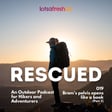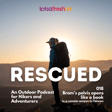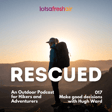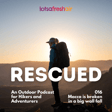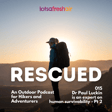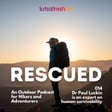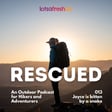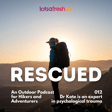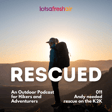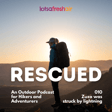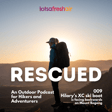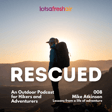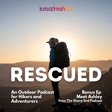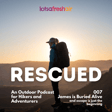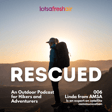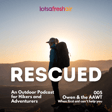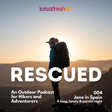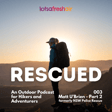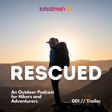
002 // Matt U'Brien - Former Blue Mountains Police Rescue Squad
Matt U’Brien’s story is powerful.
During his 17-year policing career (mostly within the Police Rescue Squad), he’s done literally hundreds of rescues and saved countless lives whilst risking his own.
What’s unique about Matt, is that during this time he also found himself in the critical position of needing to be rescued himself.
For this, and many more reasons, I’ve asked him to join me for a special double episode to share his experiences from both sides of the rescue coin.
We talk about what led him to join Police Rescue, his love of the bush and canyoning, and some of his insights from years of helping out people like you and me, who just love being in nature. Oh, and if you’re squeamish about your family jewels, you might want to stop listening between 19:30-21:00.
Today, he’s on a different journey, one that comes as a consequence of his years spent serving the community, often being alongside people on the worst day of their lives. This year will see him travel 2,400 km from the Lambert centre of Australia (Heart of Country), to Parliament House in Canberra (Heart of Nation), with a critical message for our Country’s leaders.
You can connect with Matt and his podcast at https://linktr.ee/h2hwalk
And the Heart 2 Heart Walk at https://www.heart2heartwalk.org/
Check out the current work of the Blue Mountains Police Rescue Squad at https://www.facebook.com/BlueMtnsPoliceRescue
To learn more about what to take on a hike and loads of helpful tips and tricks, visit my website: lotsafreshair.com where you can also download free packing lists for day and overnight hikes.
Or head over to my YouTube channel for over 100 videos on how-to’s and where-to’s.
—------------
The content in this episode may be confronting and difficult for some listeners; it includes issues of PTSD, depression, anxiety, suicide and trauma. Remember, if you need help to reach out by Googling ‘Mental Health Helpline’ in your area.
In Australia, you can call Lifeline 24/7 on 13 11 14 or visit BeyondBlue.org.au.
Further urgent help and information for first responders can be found at Phoenix Australia.
—------------
Sponsor // Paddy Pallin
Rescued Podcast main photo // Ben Cirulis and fotografija.com.au
Nature SFX // freesound.org [Kangaroo Vindaloo and Monkey Pants]
